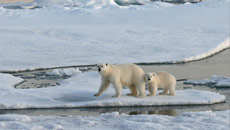Oleate, a common dietary fat found in olive oil, may help restore proper metabolism of fuel that gets disturbed in case of heart failure, a study suggests.
"This gives more proof to the idea that consuming healthy fats like oleate can have a significantly positive effect on cardiac health even after the disease has begun," said senior study author E. Douglas Lewandowski from the University of Illinois - Chicago, US.
Failing hearts are unable to properly process or store the fats they use for fuel, which are contained within tiny droplets called lipid bodies in heart muscle cells.
The inability to use fats, the heart's primary fuel source, causes the muscle to become starved of energy.
Fats, not metabolised by the heart, break down into toxic intermediary by-products that further contribute to heart disease.
In addition to balancing fat metabolism and reducing toxic by-products in hyper-trophic hearts, oleate also restored the activation of several genes for enzymes that metabolise fat, the findings of the study showed.
"These genes are often suppressed in hyper-trophic hearts," Lewandowski added.
"The fact that we can restore beneficial gene expression, as well as more balanced fat metabolism, plus reduce toxic fat metabolites, just by supplying hearts with oleate - a common dietary fat - is a very exciting finding," Lewandowski pointed out.
For the study, the researchers looked at how healthy and failing rat hearts reacted to being supplied with either oleate or palmitate, a fat associated with the Western diet and found in dairy products, animal fats and palm oil.
When the researchers perfused failing rat hearts with oleate they saw an immediate improvement in how the hearts contracted and pumped blood.
The findings were reported in the journal Circulation.





